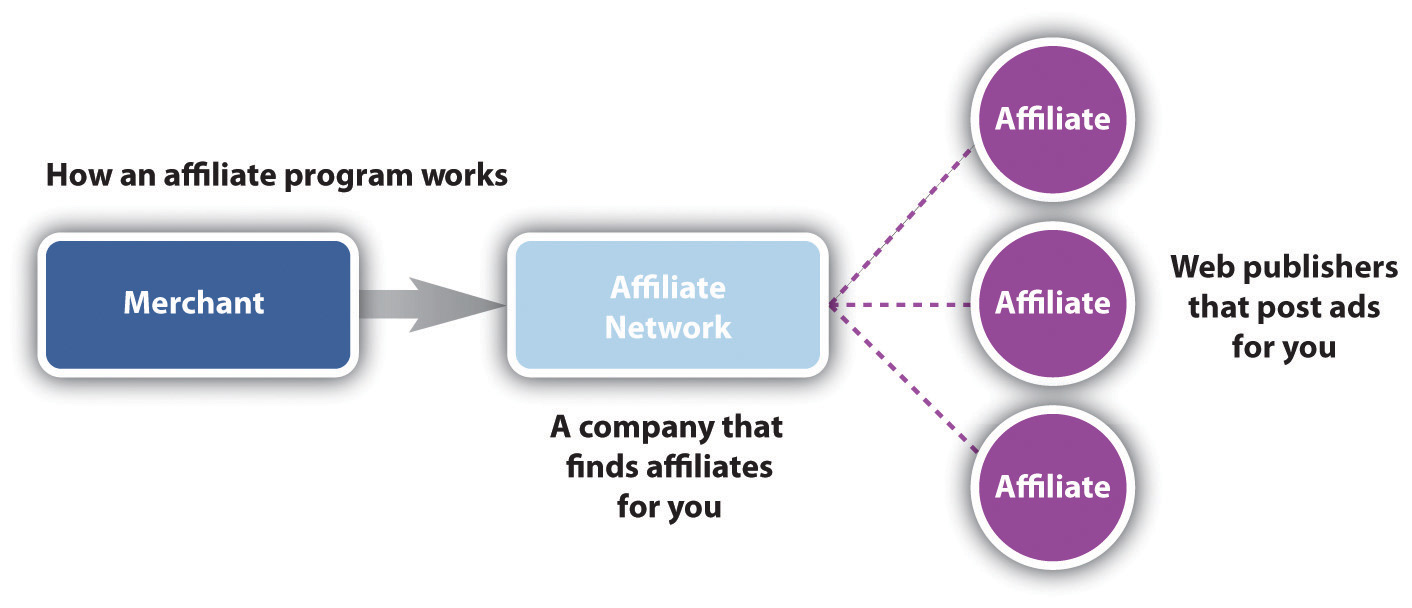As well as the affiliate and the merchant, there is a generally a very important third party in the affiliate marketing mix—the affiliate network.
While some small affiliate programs and some very large affiliate programs (such as Amazon Associates) are run by the merchant, most merchants opt to use an affiliate network to provide most of the technical solutions required for an affiliate program.
Affiliate networks provide tracking solutions, reporting on programs to both affiliates and merchants, hosting of creative banners, commission payment options, and support to both affiliates and merchants. Affiliate networks have many affiliates, and many merchants, signed up to them, so they are ideal sources for recruiting affiliates if you are a merchant or for finding merchants to promote if you are an affiliate. Affiliate networks provide a one-payment solution to merchants, as the merchants will be invoiced for all the commission collectively owed, which is then dispersed to the affiliates.
Figure 4.6

Affiliate networks act as a gateway between merchants and affiliates.
Affiliate networks usually charge the affiliates nothing to join. They can charge a merchant a setup fee, which will cover the cost, making sure that the tracking solution is successfully integrated, and can charge a monthly management fee, depending on the level of support offered to the merchant. Affiliate networks usually charge the merchant a percentage of the commission earned by the affiliate (called a commission overrideAffiliate networks usually charge the merchant a percentage of the commission earned by the affiliate.), so that there are incentives for the networks if they perform well. As a rough guide, this is typically 30 percent of the commission rewarded to the affiliate.
Some leading affiliate networks include the following: